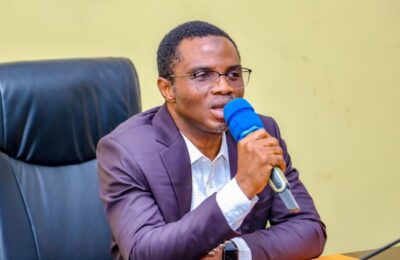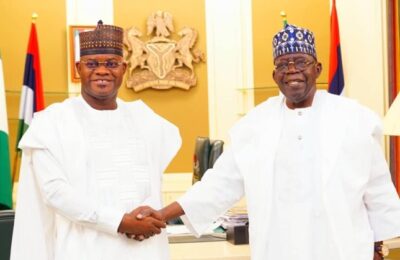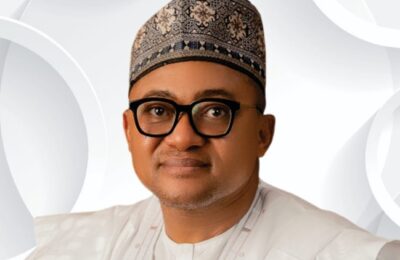A broken mirror cannot reflect a true image. And this is what the Igala political landscape has become—a shattered reflection of what once was, offering only jagged fragments of its former glory. The elders who once led the people with both staff and song, now murmur and chew Obi Igala (Igala kolanuts) angrily behind closed doors, passing neither vision nor virtue to the next generation. The throne still glimmers in the distance, but no feet are tracing its path. The true tragedy is not merely that some of our great leaders died, but that they died with the keys in their pockets and the blueprints in their graves. Dr. Stephen Achema, Prince Abubakar Audu, John Urah and others—names etched in the stone of history, but whose mantles (spirits) were neither passed nor preserved. In their silence, the next generation was left to wander—a house without a roof, a race without a finish line.
In times past, our forefathers shared their wisdom like Obi Igala (kola nuts) in the village square—freely, joyfully, and with purpose. The hunter taught his son and even families/ relatives children not only how to shoot skillfully, but when to wait. The native doctor/ herbalist passed down the secret of leaves (herbs) not to make money but to preserve life. The village drummer handed over rhythms that spoke to gods. Even the blacksmith, with calloused hands, made sure his apprentices could hammer iron into meaning. Divine secrets—once passed down like sacred beads—were protected by trust, not by ego. Our communities trained children with moral fire; the village raised leaders not because it was convenient, but because it was covenant. But today, our elders guard their secrets/knowledge like jealous kings, suspicious of every youth who dares to ask a question deeper than flattery.
The envy of our time is dark and generational. An Uncle or aunties looks upon a gifted son or daughter and says in his/her heart, “I cannot raise him/her to become more richer nor powerful than me or my children.” Even in their dying breath, some elders clutch tightly to secrets that could have preserved the land. They would rather watch the village collapse in ignorance than let another wear their crown. In the past, a wise man was celebrated for raising someone better than himself. Today, a man is insulted by the rise of another. A proverb says, “Oma ki n’illawo lile ch’uloko Attah nwu”— “A child’s greatness is the pride of the father.”_ But in this era, many fathers see their own or relatives children’s light as competition. Some of them favoured by destiny pull down the ladder after climbing and forget the fire they inherited was once passed down by another. We have become a people who sit on wells and still die of thirst.
Even worse, the moral compass is broken. Our fathers who once told stories under the moonlight to warn children against greed and shortcuts, now hand them knives or guns to fight political enemies or escort ballots drenched in blood. The wisdom that once trained warriors is now weaponized for manipulation. Where once our elders blessed children with names of destiny, today they nickname them with cult codes and send them to carry out vendettas in the name of politics. We do not raise sons—we recruit thugs. We do not teach daughters—we brand them liabilities. And when these same youths crash under the weight of this generational betrayal, the society blames them for sins they were trained into.
Our communities, once shrines of morality, have now become temples of transaction. We measure a man not by character, but by cash. The same village square where elders sat to resolve conflicts with proverbs is now where false people organize money rituals and shrine marriages. Our fathers, who once feared oaths and covenants, now bow before altars of quick wealth. It is not that our culture failed us—it is that we failed our culture. We chose applause over substance, competition over continuity, and envy over equity. And now, we are surprised that we have leaders who cannot lead, elders who cannot bless, and youths who cannot wait.
And so, the political realm reflects this moral and cultural decay. When Bello came, he did not need to build anything new. He simply studied the broken patterns, weaponized the envy, and recruited the empty. He found sons without fathers, voices without vision, and strength without strategy. He imitated the posture of Prince Abubakar Audu without the principle, and the Igala people, thirsty for any drop of remembrance, danced to his music. But once the curtain closed, he discarded us like torn wrappers after a festival. For what do you expect when a man learns more from our history than we teach our own children?
But here lies the silent disaster: this is not just about politics. It is about preservation. If we continue in this silence, if we persist in this envy, if we let ego choke the stream of knowledge, then we are not just delaying progress—we are killing it. The legacy of a people is not in their buildings but in their ability to reproduce values. You cannot export what you did not internalize. You cannot reproduce what you refuse to mentor. And when you hide the light, the land is doomed to stumble in the dark.
Yet, even in this gloom, heaven has not closed its book on us. There is still a remnant. There are still sons and daughters whose hands burn not for blood, but for blueprints. There are still voices in the caves of obscurity, waiting to reverberates truth when the noise settles. There are elders whose hearts still beat with vision, and who, though tired, are willing to speak if the people will only listen. There are young men in Ankpa, women in Dekina, students in Lokoja, and diaspora children in Canada and the UK who carry the seed of restoration—if only someone would water it. If only someone would call them forth. If only a father would break the silence and say, “Here is the path, walk in it.”
For the truth remains: until we return to mentoring, we will keep manufacturing manipulators. Until we honour our past, we cannot own our future. Until we teach, we will be taught by others. Until we break the pride of isolation, we will remain prisoners of irrelevance. And until we begin to raise replicas intentionally, we will only see our greatness in black-and-white portraits on dusty walls.
No replica in sight. And yet, the earth groans for one. The ancestors wait for one. Heaven watches for one. Let the one who hears this cry rise—not just to lead, but to lift. Not just to speak, but to serve. Not just to inherit, but to incubate.
For in the words of Myles Munroe, “True leadership is measured by what happens after you die.” And in Igala today, the silence after our heroes died has become too loud to ignore.
– Inah Boniface Ocholi writes from Ayah – Igalamela/Odolu LGA, Kogi state.
08152094428 (SMS Only)




